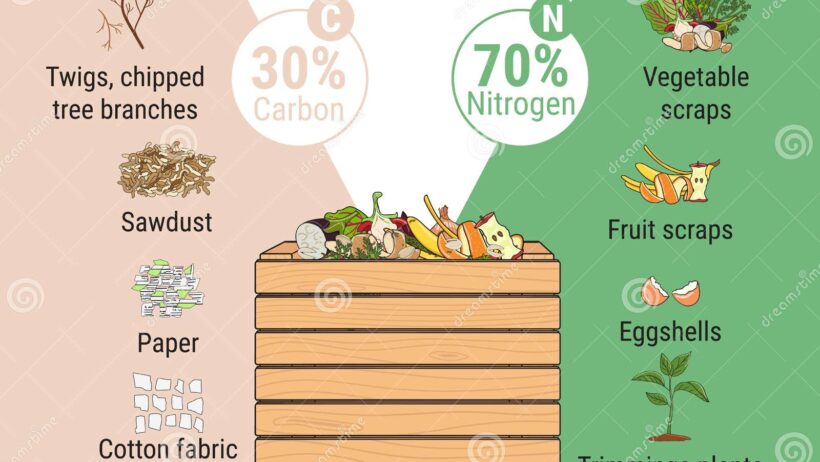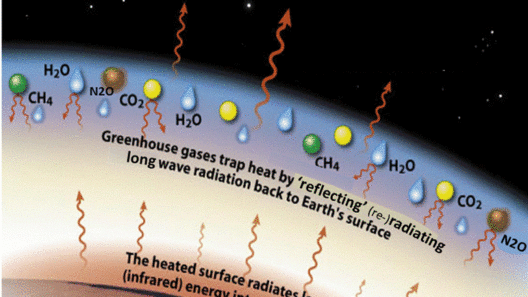Composting, often relegated to the periphery of waste management dialogues, emerges as a powerful ally in the fight against climate change. It is not merely a method of disposing of organic waste; it represents an innovative mechanism to sequester carbon, enrich soils, and foster a sustainable relationship between humans and the earth. In a world increasingly threatened by the insouciance of environmental degradation, understanding the profound impact of composting reframes our perspective, urging us to consider how our choices resonate within the intricate web of ecological balance.
As the global population burgeons, so does the waste generated by an increasingly consumerist lifestyle. The dialogue around waste typically gravitates toward landfills and incineration, but these options, notorious for their detrimental impacts on the environment, gloss over a more sustainable alternative: composting. By transforming kitchen scraps, yard waste, and other organic detritus into nutrient-rich compost, we catalyze a change that reverberates across the realms of agriculture, climate, and biodiversity.
First and foremost, composting is an ecological necessity. Traditional waste management methods—including landfills—emit methane, a greenhouse gas far more potent than carbon dioxide. When organic materials decompose anaerobically in landfills, they contribute substantially to global warming. However, with a shift towards aerobic decomposition in composting, we can drastically diminish these emissions, offering a simpler yet remarkably effective solution to an otherwise mounting crisis.
Composting enriches the soil in a manner that transcends mere fertility. Compost, brimming with microorganisms, plays a crucial role in enhancing soil structure, increasing water retention, and fostering biodiversity among soil organisms. These attributes are paramount in an era characterized by erratic weather patterns and droughts. Healthier soils cultivates greater resilience against climate extremes, making it imperative for farmers and home gardeners alike to adopt composting as a staple of their gardening practices.
The benefits of composting extend beyond the realm of individual gardens or farms. On a macro scale, widespread adoption of composting can recalibrate the agricultural sector. As industrial farms grapple with soil depletion due to overuse of chemical fertilizers, compost serves as a natural alternative that can restore essential nutrients to the earth. This revitalization of soils not only enhances crop yield but also promotes healthier food systems. Such a transformation paves the way for a fundamental shift in how we appreciate and engage with our food sources, opting for sustainability over short-term gratification.
Moreover, composting has the potential to foster community engagement and collective responsibility. Organizing community composting initiatives creates a shared sense of purpose among participants, galvanizing local residents towards a common goal of environmental stewardship. These initiatives not only promote sustainability but also cultivate agricultural literacy, allowing community members to connect with the source of their food, fostering a deeper appreciation for the earth’s natural cycles.
Civic and governmental bodies are increasingly recognizing the potential of composting as a viable strategy for waste management. Cities worldwide are initiating programs designed to streamline organic waste collection and composting. These movements not only alleviate the burden on landfills but also represent a commitment to long-term sustainability goals. Everyone can contribute, from urban dwellers in apartment complexes adopting vermicomposting to rural residents establishing large-scale composting systems.
For individuals, starting to compost can feel daunting. Nevertheless, it is a straightforward process that can be tailored to fit diverse lifestyles. Whether employing a backyard bin, a worm composting system, or a simple countertop composter, the fundamentals of composting remain consistent: balance green materials (nitrogen-rich) with brown materials (carbon-rich), maintain moisture, and monitor aeration. Many educational resources exist to illuminate this process, alleviating the barriers to entry for newcomers.
Additionally, composting aligns with the principles of circular economy, an approach that seeks to eliminate waste by continually repurposing materials. By viewing organic waste as a valuable resource rather than refuse, we shift our societal narrative. This reframing of waste catalyzes innovation in both urban planning and agricultural design, allowing us to harness the potential of our organic materials to forge a sustainable trajectory toward restoring ecological integrity.
However, the journey towards a global composting culture necessitates systemic change at multiple levels. Advocacy for policy reform is essential, pushing governments to incentivize composting through subsidies for composting facilities and infrastructure, educational programs, and community initiatives. By placing composting at the forefront of waste management discourse, we can drive meaningful change that extends beyond the individual to encompass societal and environmental justice.
In conclusion, composting encapsulates the promise of a cooler planet through a simple yet profound act. Embracing this practice encourages a paradigm shift in how we perceive waste, inviting us all to contribute to a healthier, more sustainable future. Each scrap of food, each fallen leaf, embodies the potential for renewal, illustrating that our collective choices possess significant power. When we prioritize composting, we are not merely managing waste; we are nurturing the foundations of our ecosystems, sowing seeds for a greener legacy for generations to come.







